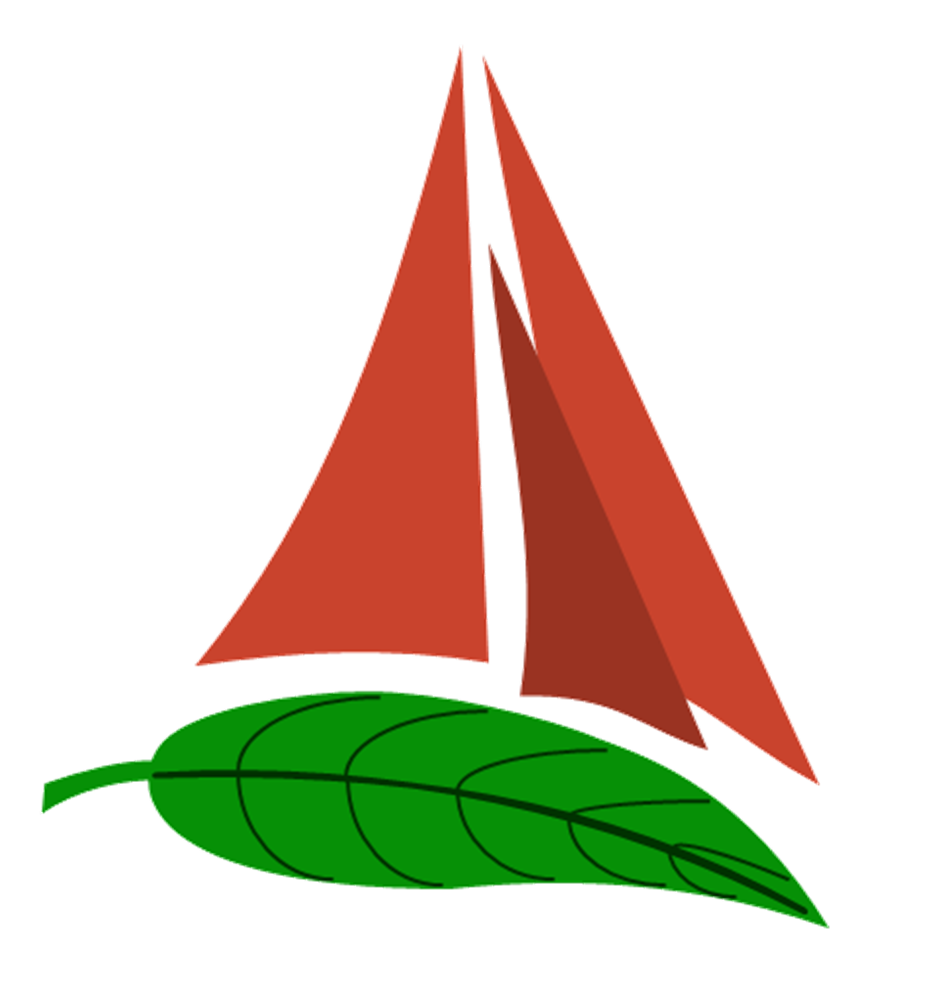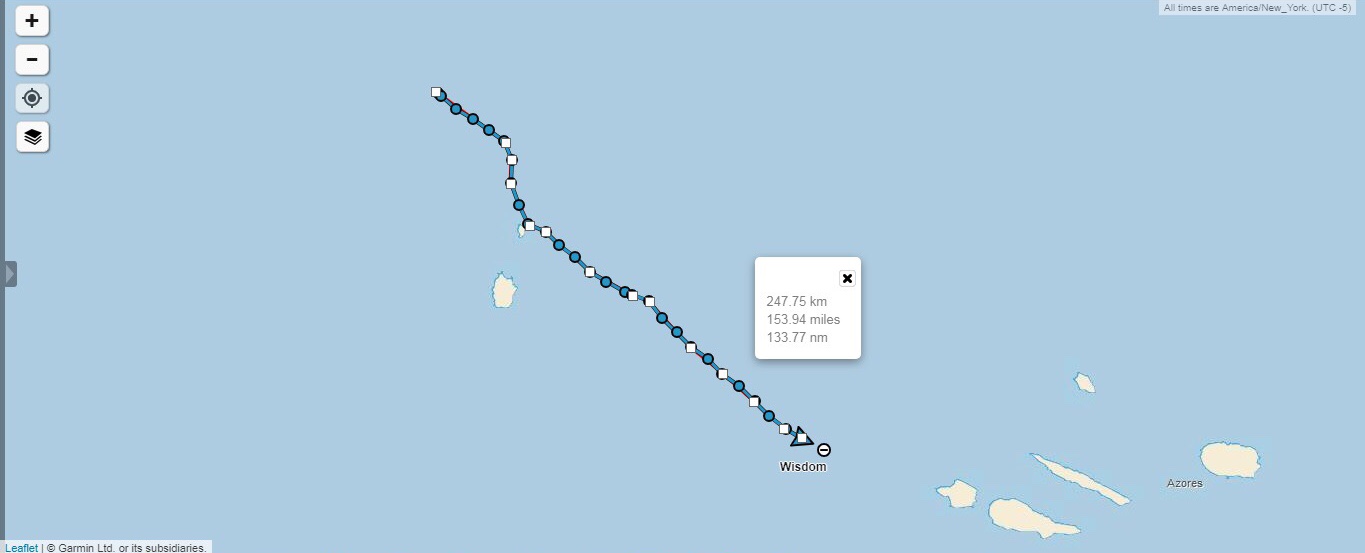Aug 1st, 2018. We have now entered the Azores, and with great speed too! Our average speed for this 24 hour run was a whopping 5.5 knots.
At dawn the horizon was still empty, but I knew land would be visible soon. We decided to sail close to Corvo because we wanted to see some land before we made our way into the archipelago.
While the horizon might look like more water, there is a give-away written in the clouds! All clouds move, but clouds over an island will tend to be stationary.
While staring ahead, I noticed that the clouds just above and to the left of the gate never seemed to move. All the clouds were moving from right to left over the horizon, but those clouds were stationary. LAND!
We kept sailing in that direction and soon I could see the faint outline of the cliff sides of Corvo rising up out of the water!
A while later, we were several miles closer to the island and the outline of the landmass seems more pronounced on the horizon.
The original plan was to sail between Corvo and Flores as we entered the Azores, but I was worried about wind shifts from the cape effect as we passed through the narrow straight between the two islands. I was also concerned with the current that might exist in there as the tidal waters moved from East to West. According to the tide tables, it was supposed to be high tide, so we might be approaching the pass at peak ebb tide and be pushed back unnecessarily!
Instead of risking it, we simply put Corvo on our starboard bow and continued to make our way towards it.
We passed the island on the North side and stayed close enough to appreciate the beautiful sight of land but far enough to keep safe from the dangerous shores that we saw before us.
Passing the island on the North side while sailing on starboard tack means that we were not going to have a lee shore, but we would have to negotiate with the islands wind shadow. The wind shadow of an island can extend for miles, as it is roughly 8 times the length of the objects height. On a massively tall island like this, the wind shadow could easily extend for miles out to sea. Thankfully, the island is small so the wind shadow would be short lived as we drift across the waters while being pushed by the current.
As we neared, we were graced by the presence of something we hadn’t seen in a while: birds.
This guy looks like a brown albatross from a distance, though I am not a bird watcher by any measure. It was merely massive, huge, glided around without flapping its wings, and had a beak that resembles that of an albatross. Most importantly, this bird has land behind him!
We have now entered the Azores and were close to our next port.
We passed rather close to Corvo and once clear of the wind shadow, made our way towards Faial. Horta is located on the SE side of the island, but the winds were acting kind of fluky, so I decided it would be best to head straight there in as short a distance as possible. If we could get close to the island, we could then day sail our way into port without any major distances to cover. If we hedge our bets on what the winds will do, we might find ourselves far off with the wrong winds and no motoring ability to correct the mistake.
Seeing land after 25 days is magical. The horizon used to always be empty, and all of a sudden, there it is, the missing vision we have been searching for!














